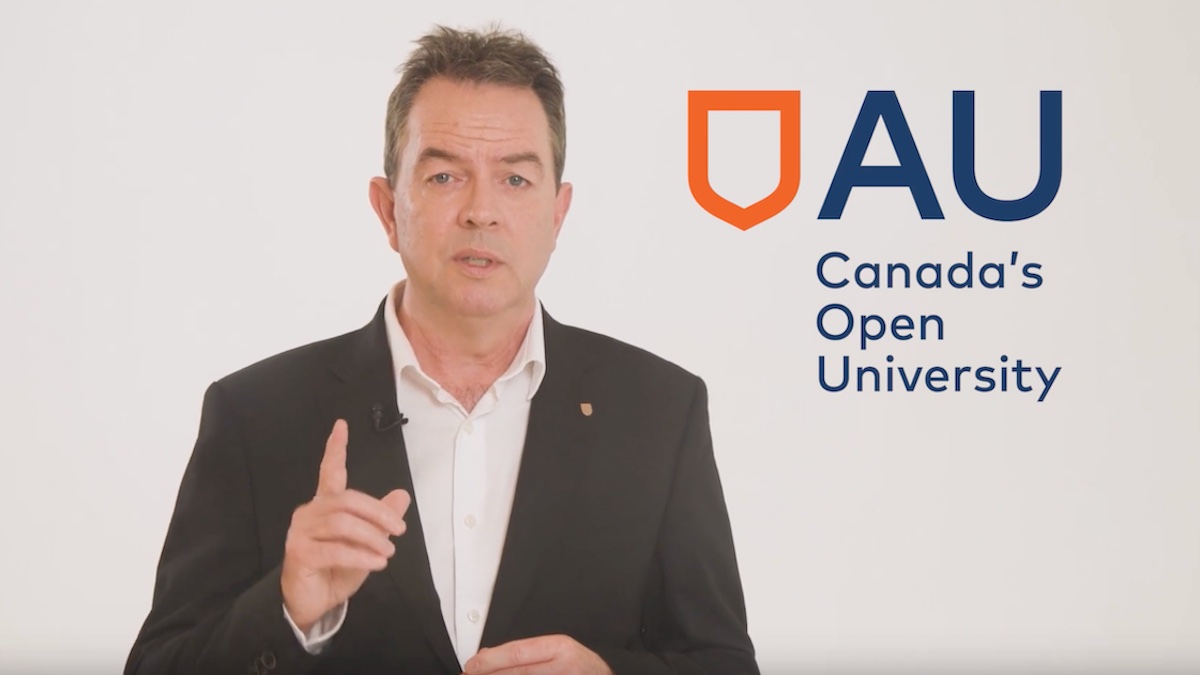After months of scrapping with the United Conservative Party (UCP) government over the role Athabasca University (AU) should play in economic development for the Town of Athabasca, university president Peter Scott has been fired.
In a statement emailed to AU faculty and staff Wednesday ostensibly announcing the appointment of a new president, UCP-appointed board Chair Byron Nelson confirmed that Scott “has been released from his position as president of Athabasca University.”
While the term “released” was ambiguous, Nelson soon after told media Scott had been “terminated without cause.”
Nelson, a former Progressive Conservative Party leadership candidate, did not give a reason for Scott’s firing in the email, nor did he say in his statement how or when the decision was made, or precisely by whom – factors that could turn out to be important if a satisfactory severance deal cannot be reached with departing president, who was hired only in January 2022.
According to the Globe and Mail, Scott’s five-year contract had a base annual salary of $305,000 and indicated he is entitled to 26 weeks’ salary as severance. Given the circumstances of his firing, arguably for trying to do what he was hired to do after moving from Australia, it’s possible that won’t be the end of the story.
Scott was touted as “an international expert in digital-first learning” when his appointment to lead the 53-year-old distance education university was announced. He had been vice-chancellor at the University of Technology in Sydney, Australia. He holds a PhD in psychology from Sheffield University in the U.K.
However, he soon made himself unpopular with Advanced Education Minister Demetrios Nicolaides and former premier Jason Kenney by publicly opposing their scheme to force 500 employees and their families to move to the Town of Athabasca, population 2,800, 145 kilometres north of Edmonton.
Scott’s firing seemingly confirms an unprecedented level of interference in the operation of the post-secondary institution by elected officials.
In a video message posted in August last year – watch it soon, because AU is bound to pull it down quickly now – Scott assailed the Kenney-Nicolaides plan as “1980s thinking” that would put AU on “the path to ruin.”
In the 12-minute video, he accused Dr. Nicolaides and the UCP of putting regional pork-barrel politics ahead of the interests of the university and its students.
“I’m concerned that the minister has put AU in an unreasonable, untenable position,” he said. “Signing this agreement may set the university back 40 years.”
Nicolaides eventually toned down his plans for a large move, at least for the time being, but continued to insist he wanted the university’s top executives to live in the town. He told members of the AU community he believed it was possible for AU to expand the worldwide “near virtual campus” Scott and earlier presidents had advocated while still keeping a significant number of employees at the university’s two-building campus in the town that few students ever see.
Whether the UCP government demanded Dr. Scott’s removal, the board decided to fire him on its own, or the decision was made by Nelson and other government appointees on the board, his replacement is presumably willing to live in Athabasca and be easier for the minister to get along with.
Alex Clark, the new president, was until Wednesday AU’s dean of health sciences.
He was a leading candidate in the search that chose Scott, Nelson’s email said. But given the state of turmoil, falling enrollment, the fact the university is facing a $5 million funding shortfall, plus the threats of cuts to funding if the university failed to do Nicolaides’ bidding, a normal executive search would probably have had trouble finding a qualified outside candidate willing to take the job.
Clark holds a PhD in nursing and is an RN. He is the author of a blog called “The Happy Academic” and, according to his official AU biography, was once named a World Economic Forum Young Global Leader.
In a video Clark said that “as president, with an active residence in the town of Athabasca, I commit to grow AU’s contributions near and far.”



